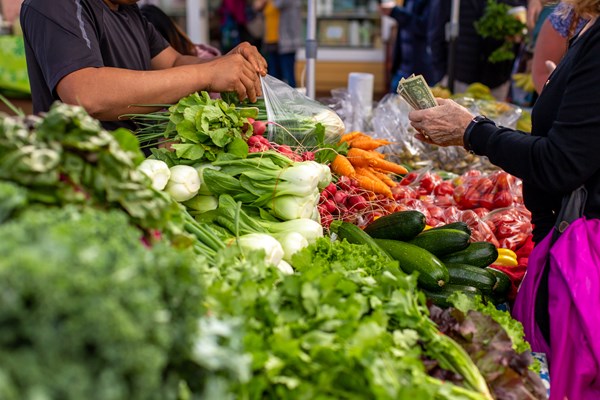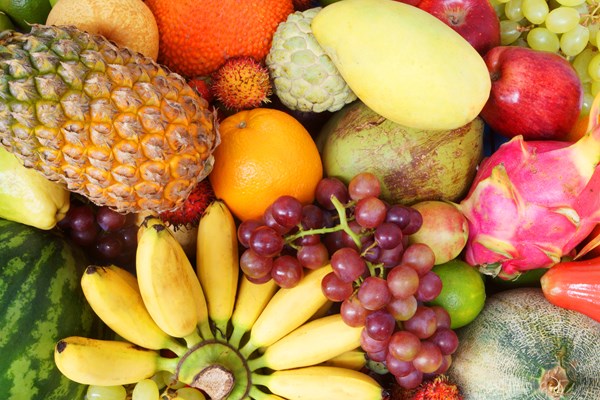Meaningful legislation related to agriculture and local food moving forward
Feb 28, 2023


It’s been a busy legislative session so far with Hawaii lawmakers introducing 3,132 bills, including many measures important to Hawaii’s food agriculture sector. A key deadline called First Lateral passed on Feb. 17, which means all bills referred to more than one committee needed to have moved to their final committee in the originating chamber by the deadline in order to keep moving forward.
Ulupono Initiative is strongly supporting several of these measures under four priority areas:
Maintain agriculture infrastructure for land and water — This includes maintaining and upgrading aging water and irrigation infrastructure to meet local food production goals, as well as developing supporting infrastructure on available state agricultural land for production. Ulupono supports the Hawaii Department of Agriculture’s (HDOA) departmental capital improvement project funding requests toward these investments, as highlighted in the department’s 2019 updated Agricultural Water Use and Development Plan.
- HB 309 SD1 authorizes the Director of Finance to issue general obligation bonds to finance capital improvements to various irrigation systems.
Establish the Hawaii Agricultural Investment Program — This program may be used for awarding grants to farmers, acquiring land for agricultural development, improving farming infrastructure, equipment and technology, training and certification, and other general uses aligning with the state’s commitment to local agriculture production. Ulupono supports the state’s efforts to invest in local agriculture and recognizes the many economic difficulties the state faced in 2021. However, the 2021 state legislative session saw the Department of Agriculture (HDOA) lose millions of dollars due to the elimination of its Agricultural Development and Food Security Special Fund (the “Barrel Tax”), which was the HDOA’s main source of industry funding. These significant cuts have negatively impacted the HDOA’s ability to support the agricultural industry with funding and resources at a time when the industry needs them most.
- HB 690 HD1 and SB640 SD1 establish the Hawaiʻi agricultural investment program to support local agricultural producers.
Fund expansion of the “DA BUX” Double Up Food Bucks program — DA BUX provides a dollar-for-dollar match to supplemental nutrition assistance program beneficiaries who purchase locally grown fruits and vegetables at participating farmers' markets, grocery stores, and community-supported agriculture projects across the islands. The program supports local farmers, helps low-income families that receive double the purchasing power for healthy, Hawaii-grown produce, and benefits Hawaii by keeping dollars in the local economy. In 2020-2021, DA BUX purchases supported more than 470 farms. It also leverages a one-to-one federal funding match. (For example, a $3 million annual investment, which would be federally matched and amount to $6 million.) With that level of funding in place, the potential economic impact in Hawai‘i reaches nearly $19 million.
- HB 1248 HD1 appropriates funds to the Department of Agriculture for the continued administration as well as matching funds to beneficiaries who participate in the supplemental nutrition assistance program.
Support and empower farm-to-school efforts — Stakeholders working across education, health, and food agriculture industries are supporting bills intended to facilitate progress toward a shared goal of providing healthier meals for our children. With the Hawaii Department of Education (DOE) serving more than 176,000 students across the state, there is also community support and recognition of the department’s unique role, not only as the state’s largest purchaser of food but also in shaping the tastes, perceptions and healthy behaviors of future generations. To that end, the Hawaii DOE is legislatively mandated to ensure that 30% of all foods served in public schools will consist of locally sourced products by 2030.
- HB248 HD2 aims to expedite the implementation of the Hawaii DOE’s farm-to-school program and farm-to-school meals program. It also expands the authority of the department’s Complex Area superintendents to empower those within who are enthusiastic and ready to champion farm-to-school efforts.
- HB250 HD1 establishes procurement rules for the Hawaii DOE for its food programs, including a geographic preference for locally grown and raised food. It’s important that local producers have opportunities to participate in institutional purchasing and the geographic preference will be beneficial to regional farmers and ranchers.
The following meaningful bills are also moving forward:
- HB610 HD1 establishes a workforce retention tax credit for farm employers or owners who employ farm workers. Ulupono supports the state’s goal to double food production, and this measure addresses labor, which is one of the most important issues in local agriculture. Hawaii has more than 7,300 farms, and 78% of them produce less than $25,000 in annual sales. This measure would empower farm businesses to incentivize employees and increase workforce retention.
- SB77 SD1 authorizes the HDOA to request information from the Department of Land and Natural Resources related to the establishment of necessary and reasonable easements upon the lands and requires the HDOA to accept the transfer of and manage certain qualifying non-agricultural parklands, among other provisions. Ulupono supports the local livestock industry and its efforts to provide fresh and healthy products to residents. Components of this bill are critical to ranchers, who are a vital group in providing food security to the state and who pride themselves on being stewards of the land and participating in conservation efforts that increase yield while supporting natural resources. Affordable, long-term leases will incentivize investments, which improve economic viability and increase local food production.
- SB833 SD1 requires the Office of the Governor to negotiate the state’s fees simple acquisition of the Wahiawa Irrigation System and appropriates funding to the HDOA and the DLNR for the purchase, repair, and maintenance of the system and its associated spillway. Ulupono supports funding for critical agricultural infrastructure as this system provides water access to local producers in the region. It’s important that the Wahiawa Irrigation System stay with the state and is not abandoned or sold to a private entity. In addition, Ulupono supports other maintenance and repair projects proposed with the HDOA’s capital improvement project (CIP) budget as they are an essential component to achieving goals to increase food production and security in Hawaii.
If you’re interested in learning more about these important bills, read the full text and see their latest status at capitol.hawaii.gov.

